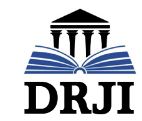LEARNING MODEL IN THE DEVELOPMENT OF ISLAMIC CIVILIZATION AT THE STATE OF ISLAMIC RELIGION INSTITUTE OF LHOKSEUMAWE
Abstract
ABSTRACT
This study aims to determine the learning model for the development of civilization at IAIN Lhokseumawe. The method of research that is used is to use approach qualitative. This means that the data collected is not in the form of numbers, but the data comes from the results of interviews, field observations, personal documents, memo notes, and other official documents. The research results are Islamic Religious Education in the scope of face-to-face lectures in class for one semester and Islamic Religious Education in activities that are outside the classroom such as seminars scheduled by the department as a form of development of PAI lectures carried out in class.  There is also an activity that is an advancement for IAIN Lhokseumawe, namely student mobility to Malaysia, which involves PAI students. The learning model in the PAI department at IAIN Lhokseumawe whose learning is based on the Student Center Learning (SCL) is to combine two learning models, namely a learning model that uses a Sufism approach and a learning model that refers to modern learning theories. The learning model with the Sufism approach used is the ta'lim model, the repetition model, the directive model, and others. Meanwhile, the learning model in the PAI department regarding modern theories used includes the cooperative model, the Contextual Teaching Learning (CTL) model, the inquiry model, and various other models.
Keywords: Learning Model, Islamic, Civilization
Full Text:
PDFReferences
Ahmad Syafii Ma’arif, “Pendidikan Islam dan Proses Pemberdayaan Umat,†dalam Jurnal Pendidikan Islam (2008)
Azyumardi Azra, “Genealogy of Indonesian Islamic Education:Roles in the Modernization of Muslim Society,†dalam Heritage of Nusantara, 2010
David Chapman and Don Adams, Education in Developing Asia, The Quality of Education: Dimensirons and Strategies (Asian Development Bank Comparative Education Research Centre: University of Hongkong, 2002)
Hujair AH. Sanaky, “Mengembangkan Model Ideal Pendidikan Islami,†dalam El-Tarbawi vol. 7 (2017)
Lexy J. Moleong, Metodologi Penelitian Kuantitatif, (Bandung: Remaja Rosdakarya, 2012)
Muhammad Syukri Salleh, Strategizing Islamic Education, dalam International Journal of Education and Research, Vol. 1 No. 6, (2015).
Nour Ahmad Qadri, Tarikh-e-Tamaddune-Indonesia (Karachi: Department of Information, KBRI, Pakistan, 1956)
Salim dan Haidir, Penelitian Pendidikan; Metode, Pendekatan dan Jenis (Jakarta: Kencana, 2019)
Saiful Akhyar Lubis, A New Paradigm for Islamic Higher Education in Indonesia: Institutional and curriculum Aspects, International Conference the Community Development in ASEAN, (2017)
Statuta IAIN Lhokseumawe, PMA No. 58 Tahun 2016
Suharsimi Arikunto, Manajemen Penelitian, (Jakarta: Rineka Cipta, 2007)
Suryosubroto, Proses Belajar Mengajar di Sekolah (Jakarta: Rineka Cipta, 2009)
Tenny Sudjatnika, “Nilai-Nilai Karakter Yang Membangun Peradaban Manusia,†dalam Jurnal al-Tsaqafa, Vol. 14, no. 01 (2016).
Zulfikar Ali Buto, “Penerapan Strategi Pembelajaran Mahasiswa Prodi Pendidikan Agama Islam Pada Sekolah Tinggi Agama Islam Negeri (STAIN) Malikussaleh Lhokseumawe,†dalam Jurnal Tarbiyah, vol. XXIV, (2018)
Mohd Yakub Zulkifli dan Majid Danes Ghar, “Islam and the Relation of Science and the Quran,†dalam Journal International conference of humanities, society and culture, vol. 20, (2018)
Yusuf al-Qaradawi, al-Sunnah Mashdaran li al-Ma‘rifah wa al-Hadharah, (Kairo: Dâr al-Syurûq, 1417 H/ 1997 M), 201. Definisi ini juga diambil oleh Dihyatun Masqon, “Studi Sejarah Peradaban Islam di Perguruan Tinggi di Indonesia: Sebuah Kajian Deskriptif Analisisâ€, dalam Hamid Fahmy Zarkasyi dan Mohd. Fauzi Hamat, Metodologi Pengkajian Islam: Pengalaman Indonesia – Malaysia, (Ponorogo: Institut Studi Islam Darussalam Gontor, 2008)
DOI: https://doi.org/10.46576/ijsseh.v2i1.1458
Article Metrics
Abstract view : 145 timesPDF – 170 times
Refbacks
- There are currently no refbacks.
Copyright (c) 2021 Dharmawangsa: International Journal of the Social Sciences, Education and Humanitis
Dharmawangsa International Journal Indexed by:
Member Of :
Dharmawangsa: International Journal of the Social Sciences, Education and Humanitis Published By:
UNIVERSITAS DHARMAWANGSA
Alamat : Jl. K. L. Yos Sudarso No. 224 Medan
Kontak : Tel. 061 6635682 - 6613783 Fax. 061 6615190
Email : dharmawangsajournal@dharmawangsa.ac.id
JURNAL Dharmawangsa:International Journal of the Social Sciences, Education and Humanitis by Universitas Dharmawangsa Medan is licensed under a Creative Commons Attribution-NonCommercial-ShareAlike 4.0 International License.
Based on a work at: https://jurnal.dharmawangsa.ac.id/index.php/dharmawangsa/index

















